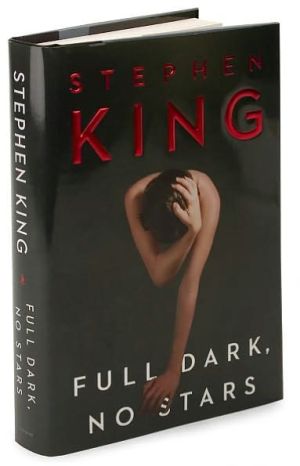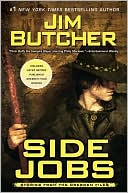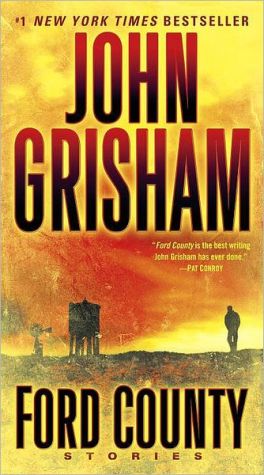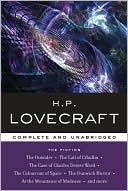The Complete Stories of J. G. Ballard
A collection of 98 enthralling and pulse-quickening stories, spanning five decades, venerates the remarkable imagination of J. G. Ballard.\ With a body of work unparalleled in twentieth-century literature, J. G. Ballard is recognized as one of the greatest and most prophetic writers in the world. With the much-hailed release of The Complete Stories of J. G. Ballard, readers now have a means to celebrate the unmatched range and mesmerizing cadences of a literary genius. Whether writing about...
Search in google:
“More than one thousand compelling pages from one of the most haunting, cogent, and individual imaginations in contemporary literature.”—William BoydThe Barnes & Noble ReviewIn J. G. Ballard's stories, the world is always ending. No surprise, given that the late author (who died in April 2009 at the age of 78) spent several years as a boy in a Japanese prison camp outside Shanghai. The casual slaughters, hardening of souls, and not-so-faraway mushroom clouds Ballard lived through -- recalled in his most popular novel, the autobiographical Empire of the Sun -- inform nearly every piece collected in this long-needed volume. Arranged chronologically, The Complete Stories presents a breathtaking vantage point on the development of Ballard's apocalyptic and mythopoeic voice. His early work in the 1950s and '60s was dominated by languorous pieces about decadent resort zones ("Prima Belladona") or crystallizing landscapes (a unique end-world scenario in "The Illuminated Man"). He transitioned during the Vietnam War to a harsher, more plot-driven, and adventurously fractured style, as in the sardonic Reagan satire "The Secret History of World War 3." A consummate reader and prolific critic, Ballard's influences were always right on the sleeve (Dalí, Conrad). But this hat-tipping never kept him from breaking new ground, which he regularly did as a charter member of Britain's New Wave, embedding classic science fiction tropes into Kafkaesque scenarios. Themes of flight and escape were recurrent obsessions, threaded into Ballard's distrust of science's utopian promises and his prescient early take on the sex- and death-drenched celebrity mediascape that blooms in many stories like a malevolent growth. What is most remarkable about the cold, sparkling dream fictions in this treasure box of a book is not, however, the myriad methods by which Ballard fantasized the world's end, but how often he presaged the arrival of something terrifyingly and beautifully new. --Chris Barsanti
\ The New York Times Book ReviewEach of Ballard’s 98 short stories is like a dream more perfectly realized than any of your own....Ultimately, Ballard is simply a master story writer—the maker of unforgettable artifacts in words, each as absolute and perplexing as sculptures unviewable from a single perspective. In this book of 98 stories, there are at least 30 you can spend a lifetime returning to, to wander and wonder around.— Jonathan Lethem\ \ \ \ \ BooklistAlthough Ballard, who died in April, was probably more influential than he was popular, during his lifetime he received the ultimate literary honorific: the use of his name in adjectival form. Perhaps best known for his books that became movies...he was a prolific and provocative short-story writer, too....An essential work from an essential writer.— Keir Graff\ \ \ The NationalAt 1,200 pages, it may seem like a daunting book for the non-enthusiast, but it provides the best angle for approaching Ballard for the first time—and displays his development into Britain's most original postwar writer...The Complete Stories of J. G. Ballard demonstrates the range and evolution of that work, and suggests that we might come up with many more uses of 'Ballardian' than we have so far.— Fatema Ahmed\ \ \ \ \ BookslutAs exotic as anyone in the aviary was Ballard, the elegant, evolving stylist, and the one with the finest ideas almost always finely executed. The full showcase of his short-form career is assembled at last in The Collected Stories, with a brilliant introduction by Martin Amis.— Richard Wirick\ \ \ \ \ Los Angeles Times[A] staggeringly great and varied volume.... The Complete Stories of J.G. Ballard offers weeks of surprise and pleasure.— Ed Park\ \ \ \ \ Seattle TimesThe marvel of most of these tales is how instantly comprehensible their alternate realities are when so little is explained—and how believable they are, too, thanks to Ballard's unflappable narrative voice. With unerring instinct, he finds the ordinariness in the most preposterous scenarios, thus connecting them in detail and tone to our own reality....There are still two Ballard novels and a memoir awaiting U.S. publication. Let's hope the overdue appearance of this volume means the rest are on their way.— Michael Upchurch\ \ \ \ \ Michael DirdaBallard believes strongly in plot, and, with a few exceptions, his stories are intensely gripping without ever being upbeat or reassuring. In style, his work combines an almost medical precision with an astonishing power for evocative description by the simplest means…Ballard's most influential stories were written mainly in the early 1960s…But this hefty volume permits a reappraisal of his excellent, if somewhat neglected, short fiction of the 1970s and '80s…In The Complete Short Stories of J.G. Ballard devastated worlds are matched with even more devastated psyches. But these aren't simply "myths of the near future," they are probes sent down into the desolate heart of the here and now. As Ballard knew, reality has become just a subgenre of science fiction.\ —The Washington Post\ \ \ \ \ Library JournalThe author of well-regarded novels like Crash and Empire of the Sun, which were made into films, British author Ballard was (he died earlier this year) a master of dystopian sf. The 1,216 pages in this collection are an astonishing record of a vibrant and vital mind at work. This volume includes 92 stories, most of which are set in some kind of nightmarish future world or alternate "visionary present," to use Ballard's phrase from his introduction to the book. The variety of stories here is impressive, even dizzying: "Manhole 69," for example, is about a scientific experiment to free human beings from sleep. "Prima Belladonna" is a disturbing story about a relationship between a singing orchid (with a 24-four octave range) and a beautiful, mysterious mutant woman. "Zodiac 2000" updates the Zodiac signs to include "The Sign of the Clones" and "The Sign of the Cruise Missile." Ballard is every bit the equal of Vonnegut, Orwell, and Huxley. VERDICT A revelation; essential reading. [See Prepub Alert, LJ 5/15/09.]—Patrick Sullivan, Manchester Community Coll., CT\ \ \ \ \ The NationBallard is probably the most original English writer of the last century.... the book is indispensable.— China Mieville\ \ \ \ \ Washington Post“Eerie and melancholy, they unsettle like a Dali painting or a Helmut Newton photograph.”\ \ \ \ \ Literary Journal“A revelation; essential reading.”\ \ \ \ \ The Nation“Ballard is probably the most original English writer of the last century.... the book is indispensable.”\ \ \ \ \ The New York Times Book Review“A master story writer—the maker of unforgettable artifacts in words, each as absolute and perplexing as sculptures unviewable from a single perspective.”\ \ \ \ \ China Mieville - The Nation“Ballard is probably the most original English writer of the last century.... the book is indispensable.”\ \ \ \ \ Jonathan Lethem - The New York Times Book Review“A master story writer—the maker of unforgettable artifacts in words, each as absolute and perplexing as sculptures unviewable from a single perspective.”\ \ \ \ \ The Barnes & Noble ReviewIn J. G. Ballard's stories, the world is always ending. No surprise, given that the late author (who died in April 2009 at the age of 78) spent several years as a boy in a Japanese prison camp outside Shanghai. The casual slaughters, hardening of souls, and not-so-faraway mushroom clouds Ballard lived through -- recalled in his most popular novel, the autobiographical Empire of the Sun -- inform nearly every piece collected in this long-needed volume. Arranged chronologically, The Complete Stories presents a breathtaking vantage point on the development of Ballard's apocalyptic and mythopoeic voice. His early work in the 1950s and '60s was dominated by languorous pieces about decadent resort zones ("Prima Belladona") or crystallizing landscapes (a unique end-world scenario in "The Illuminated Man"). He transitioned during the Vietnam War to a harsher, more plot-driven, and adventurously fractured style, as in the sardonic Reagan satire "The Secret History of World War 3." A consummate reader and prolific critic, Ballard's influences were always right on the sleeve (Dalí, Conrad). But this hat-tipping never kept him from breaking new ground, which he regularly did as a charter member of Britain's New Wave, embedding classic science fiction tropes into Kafkaesque scenarios. Themes of flight and escape were recurrent obsessions, threaded into Ballard's distrust of science's utopian promises and his prescient early take on the sex- and death-drenched celebrity mediascape that blooms in many stories like a malevolent growth. What is most remarkable about the cold, sparkling dream fictions in this treasure box of a book is not, however, the myriad methods by which Ballard fantasized the world's end, but how often he presaged the arrival of something terrifyingly and beautifully new. --Chris Barsanti\ \








